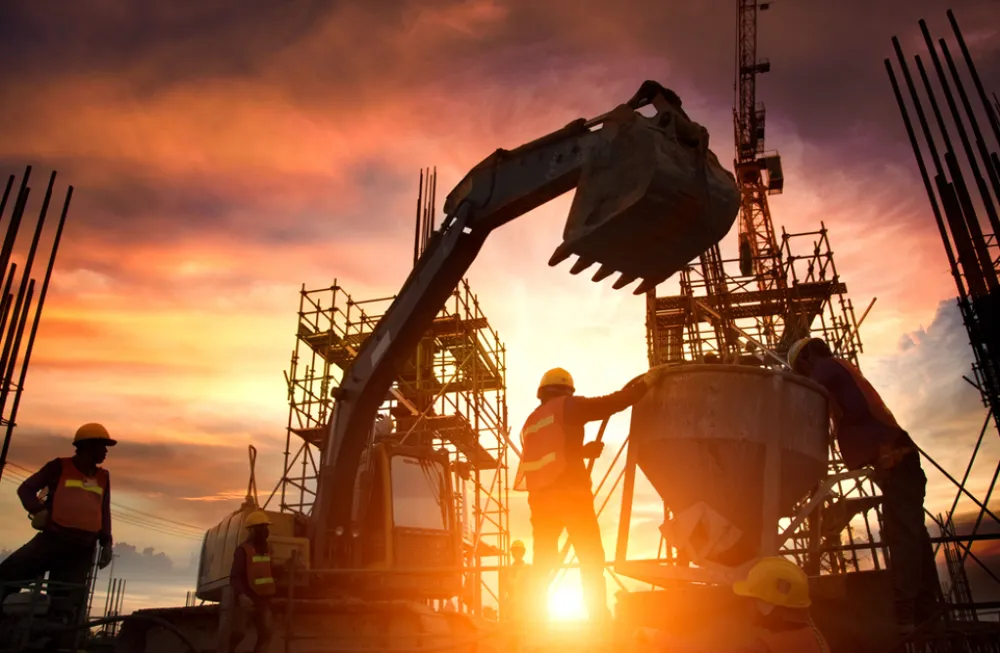When it comes to industrial development, the decision between industrial renovation and new construction is pivotal.
Both options offer unique benefits and challenges, making it crucial for stakeholders to weigh their choices carefully. In this guide, we’ll discuss the intricacies of industrial renovation, highlighting its advantages, considerations, and when it might be the optimal choice for your project.
Understanding Industrial Renovation
Industrial renovation involves revitalising existing structures to meet contemporary standards and functional requirements. This approach offers numerous advantages, including cost-effectiveness, reduced environmental impact, and preservation of historical or architectural significance.
By leveraging existing infrastructure, industrial renovation minimises material waste and expedites project timelines, making it an attractive option for many businesses.
Advantages of Industrial Renovation
- Cost Efficiency: Renovating an existing facility often proves more cost-effective than building from scratch. By repurposing existing structures, businesses significantly reduce construction expenses, including materials, labour, and permitting costs. Moreover, industrial renovation may qualify for tax incentives or grants aimed at revitalising older properties, further enhancing its financial appeal.
- Faster Time to Market: Time is of the essence in industrial projects, and renovation typically offers quicker turnaround times compared to new construction. By avoiding the lengthy processes associated with site acquisition and ground-up building, industrial renovation enables businesses to expedite project completion and capitalise on market opportunities sooner.
- Sustainability: In today’s environmentally-conscious landscape, sustainability is a key consideration for businesses. Industrial renovation aligns with sustainability objectives by minimising demolition waste, conserving resources, and reducing carbon emissions associated with new construction. By breathing new life into existing structures, businesses demonstrate their commitment to eco-friendly practices and bolster their corporate image.
Considerations for Renovation
While industrial renovation offers some great benefits, it’s important to approach the process with careful consideration and strategic planning. Several factors should be discussed before embarking on a renovation project:
- Structural Integrity: Assessing the structural integrity of the existing facility is important to ensure safety and compliance with building codes. Engaging structural engineers and conducting thorough inspections will identify potential challenges and inform renovation feasibility.
- Technological Integration: Incorporating modern technologies and infrastructure upgrades may be necessary to align the renovated facility with industry standards and operational requirements. Integrating smart systems, energy-efficient solutions, and automation can enhance efficiency and functionality while future-proofing the facility for evolving needs.
- Regulatory Compliance: Renovation projects must adhere to regulatory requirements, including zoning ordinances, building codes, and environmental regulations. Understanding and navigating these legal considerations are essential to avoid delays, fines, or compliance issues throughout the renovation process.
When is Renovation the Right Choice?
Industrial renovation presents an attractive option under various circumstances:
- Preservation of Heritage: When renovating historic industrial structures, businesses can preserve architectural heritage while modernising functionality to meet contemporary needs. This approach honours the past while embracing the future, creating a unique blend of tradition and innovation.
- Limited Budget or Resources: For businesses operating within constrained budgets or timelines, industrial renovation offers a cost-effective and expedient solution. By leveraging existing assets and infrastructure, businesses can achieve their objectives with minimal financial strain and resource allocation.
- Adaptation to Changing Needs: As industries evolve and market demands fluctuate, the flexibility afforded by industrial renovation becomes invaluable. Businesses can adapt existing facilities to accommodate shifting requirements, whether scaling operations, diversifying product lines, or implementing new technologies.
In conclusion, industrial renovation offers a compelling alternative to new construction, combining cost efficiency, sustainability, and flexibility to meet the needs of modern businesses. By carefully evaluating the advantages, considerations, and optimal scenarios for renovation, stakeholders can make informed decisions that propel their projects to success.
Whether preserving historical landmarks or revitalising outdated infrastructure, industrial renovation holds great potential for driving innovation and growth in the industrial sector.
Unlock the Potential of Renovation with Octego
At Octego, we understand the transformative power of renovation and its ability to revitalise your facility while aligning with your business objectives.
With our expertise in construction and renovation, we’re dedicated to guiding you through every stage of the process, from conceptualisation to completion.
Don’t let outdated infrastructure hold your business back. Whether you’re looking to modernise existing facilities, optimise operational efficiency, or preserve architectural heritage, Octego has the experience and resources to bring your vision to life.
Get in touch with us today to learn more about our renovation services and how we tailor solutions to meet your specific needs. Call us on 01444 405269 to schedule a consultation with our team of friendly experts.

